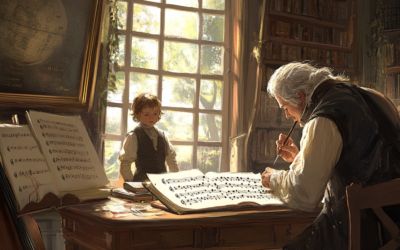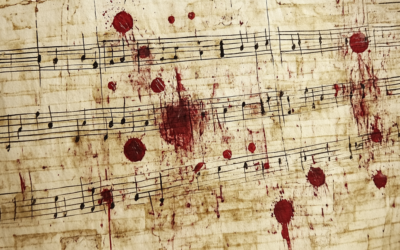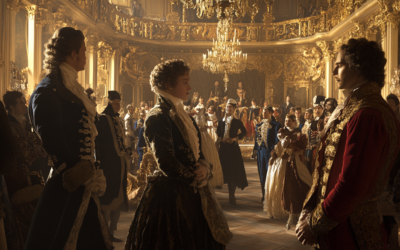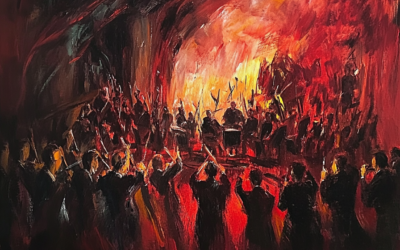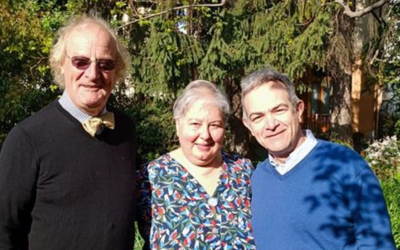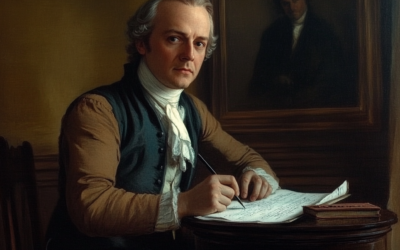A Modern Premiere in Germany
Pacini’s Medea Brought to Life
Giovanni Pacini’s Medea, revised by Luca Bianchini and Anna Trombetta, made its modern premiere in Germany at the Theater für Niedersachsen. This monumental work was performed in full, marking a triumphant revival of Pacini’s forgotten genius.
Mozart: The Fall of the Gods
This book offers a fresh and critical look at the life of Wolfgang Amadeus Mozart, challenging the myths that have surrounded him for centuries. We strip away the romanticised image of the “natural genius” and delve into the contradictions within Mozart’s extensive biographies. Backed by nearly 2,000 meticulously sourced citations, this work invites readers to explore a deeper, more complex understanding of Mozart. Perfect for those who wish to question the traditional narrative, this biography is a must-read for serious music lovers and historians.
"Pacini’s Medea returns to the stage, reminding us that some of the most powerful operatic works have yet to receive the recognition they deserve."
@MozartrazoM
For the first time in Germany, Giovanni Pacini’s monumental opera Medea has been performed in a modern premiere at the Theater für Niedersachsen in Hildesheim. This captivating work, filled with both horror and compassion, was masterfully revived thanks to the new edition transcribed and revised by musicologists Luca Bianchini and Anna Trombetta. The edition, comprising nearly 1,500 pages of score and sheet music, restores the grandeur of Pacini’s forgotten masterpiece.
The opera, which was performed in its entirety under the baton of Maestro Florian Ziemen, received enthusiastic acclaim during its premiere, with several more performances scheduled in the weeks following. Originally premiered in 1843 to great success, Medea once again demonstrated its powerful impact on audiences, blending dramatic intensity with Pacini’s masterful composition.
This modern revival highlights how Pacini, unjustly neglected in music history, deserves to stand among the greats of opera. The character of Medea, both terrifying and pitiful, remains one of the most complex and fascinating figures in opera, and Pacini’s setting captures every nuance of this tragic tale.
You May Also Like
Leopold Mozart: A Portrait in Shadows
Leopold Mozart’s life was a whirlwind of ambition, deceit, and disappointment—a stark portrait of a man chasing success at any cost.
The London Pieces: Mozart or Make-Believe?
The London pieces, edited for modern tastes, lose their authenticity. Only the uncorrected originals show Mozart’s true early voice—naïve yet authentic.
The Myth of the “Viennese Classics”: Mozart’s True Heritage and the Empire’s Agenda
Mozart wasn’t the quintessential Viennese; rather, he was shaped by German heritage and an opportunistic empire that controlled music as fiercely as it did its people.
The Nationalistic Roots of the Philharmonic Legacy
Under Goebbels, the Berliner Philharmoniker became an instrument of Nazi propaganda, framing German composers as the supreme guardians of musical heritage.
Australian Scholars Confirm Our Findings on Mozart’s Forged Catalogue
Professor Martin Jarvis of Darwin University confirmed our long-held findings that Mozart’s personal catalogue is a forgery, during his recent lecture The Mozart Scam. Forensic analysis continues to unravel the myths surrounding Mozart’s legacy.
The Italian Journey
The Mozarts’ Italian journey of 1769 was not a leisurely Grand Tour but a strategic mission driven by ambition, navigating the treacherous roads of 18th-century Europe in pursuit of fame and fortune.


